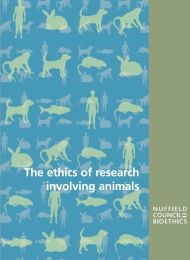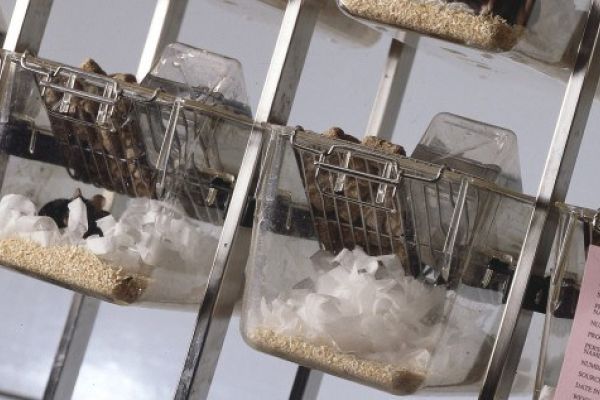The ethics of research involving animals
Report
Published 24/05/2005

This report makes recommendations in the following areas:
- Improving the availability of information
- Fair debate
- Importance of the Three Rs
- Toxicity testing
We conclude
The report concludes that the concept of the Three Rs and the hybrid moral position underlying the Animals (Scientific Procedures) Act 1986 (some absolute limits, and a case by case weighing of the costs and benefits) could be accepted, or at least tolerated, by all those holding reasonable views.
By fine tuning the regulations, relaxing some restrictions and introducing others, more people may be able to endorse the regulations than has been the case so far. Not everyone will be able to fully support this approach, but they may be able to tolerate it as a compromise, while continuing to campaign for changes in policy.
Three Rs
Before a licence is granted for animal research, researchers are required to demonstrate that the ‘Three Rs’ – Refinement, Reduction and Replacement – have been implemented to reduce animal suffering as far as possible.
By law, animal experiments can only be carried out if the desired results cannot be achieved by another method, and a range of replacement methods have been developed in different areas of research. The report gives examples of all Three Rs, and considers barriers to their implementation and ways in which these could be overcome.
What are the Three Rs?
Based on concepts initially developed by Russell and Burch in 1959, current definitions of the Three Rs are as follows:
Refinement: Improvement of all aspects of the lifetime experience of animals to reduce suffering and improve welfare.
Reduction: The use of fewer animals in each experiment without compromising scientific output and the quality of biomedical research and testing, and without compromising animal welfare.
Replacement: The use of methods that permit a given scientific purpose to be achieved without conducting experiments or other scientific procedures on living animals.

Share